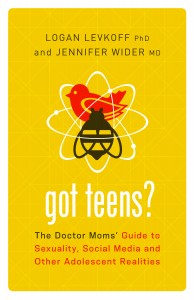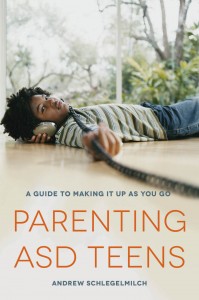|
|
March 31, 2014
 An essential book for adoptive parents When kids “act out” you’d better believe strong emotions are the drivers. Parents and teachers usually pay attention to the behavior without taking time and patience to dig deeper and discover the trigger that unleashed the storm. What’s causing such distress in this child that s/he is acting this way? Discovering the answer is key to understanding children and ultimately helping them a) understand themselves better b) effectively manage their destructive emotions c) express themselves in socially responsible ways so that d) they can get their needs met without causing harm to themselves or others.
This truth was illustrated beautifully in a story Dr. Karyn Purvis told me during our interview for my podcast, Family Confidential back in 2010. Dr. Purvis is a Developmental Psychologist and Director of the Institute of Child Development at Texas Christian University (TCU) in Fort Worth. For the past decade, she and her colleagues have been developing research-based interventions for at-risk children. Dr. Purvis is also the co-author of The Connected Child: Bring Hope and Healing to Your Adoptive Family, a book that has helped countless adoptive and foster parents better connect with their children who have come from “hard” places.
In our recorded conversation Dr. Purvis tells me about a little girl playing in the kitchen while her mom makes dinner. The girl asks for a candy bar. Mom says, “No, sweetheart. Dinner will be ready in ten minutes.” The girl has a full-fledged meltdown, screaming, crying inconsolably. She throws things and physically and verbally abuses her mother. Mom has no idea what’s going on and feels powerless to help her daughter.
In desperation, Mom turns to Dr. Purvis and comes away with a better understanding of what was going on and how to meet her little girl’s needs without giving her candy every time she asks. Turns out this child was adopted from an orphanage where she often did not get enough to eat. When her mom said “no” to the candy, the girl panicked and remembered feeling powerless as she cried out in hungry, only to be ignored. Dr. Purvis’ compassionate response helped the mom and the child immeasurably. What was the solution?
You need to hear my never-before-published interview with Karyn Purvis, an educator for whom I have the highest respect and admiration. Listen in.

March 24, 2014
I was in high school when I read David and Lisa, by Theodore Rubin. (The book and the ground-breaking film on which it’s based, are both profound and well worth checking out.)
David and Lisa are a couple of teens with “issues” who meet and fall in love in a residential treatment center. When the kids from the center go on a neighborhood field trip they encounter a group of “typical” teens who mock them viciously for not being “normal.” To which David counters: “If you’re normal who wants to be normal??” (Best comeback ever!)
The character’s self-confident defiance launched a personal revolution inside my head. Come to think of it, that single line of dialogue has probably been the engine driving much of what I do, what I write, and what I teach.
 User’s manual for parents of teens So what is “normal”? That’s what I wanted to explore when I sat down recently with my Family Confidential podcast guest, Dr. Jennifer Wider MD. Jennifer aka, Jena, is a nationally renowned women’s health expert, author, and radio host. Her weekly radio segment on Cosmo Radio is called “Am I Normal?” Dr. Wider’s latest book (co-authored with Logan Levkoff, PhD) is Got Teens? The Doctor Moms’ Guide to Sexuality, Social Media and Other Adolescent Realities. Learn more at DrWider.com.
Jena and I had such a dynamic conversation about the myth of “normal” I wanted to share it here. I can’t think of anything more essential to the emotional well-being of young people than helping them bust out the confines of living up to someone else’s idea of how they should look, feel and think so they can gain confidence to be themselves. Listen in on our conversation here.

March 17, 2014
 We’re all “making it up” as we go along, aren’t we? It’s been nearly seventeen years since I launched my first teen website (TheInSite). And what I know from the non-stop flow of email questions is that dating is hard for all teens. For teens on the spectrum, who have challenges reading social cues as well as a lower need for attachment and emotional connection than neuro-typical kids, dating can be especially daunting.
Enter Dr. Andrew Schlegelmilch, Ph.D., clinical psychologist who specializes in working with individuals who have Autism Spectrum Disorder (ASD) and their families. He’s also the Head Psychologist at Orion Academy, a preparatory high school for ASD teens in Moraga, California, where, among his other duties, he teaches classes in Sex and Dating. His new book, Parenting ASD Teens will be available in May.
Recently I had the pleasure of interviewing Andrew for my Family Confidential podcast. We talked openly about helping teens with ASD understand sex and navigate their social lives. Listen in here.

February 28, 2014
 I wanna hold your hand and… Friday is Family Confidential day. Before you race over and check out my latest podcast (Having “The Talk” with Tweens with Marlene Mahurin, co-founder of the online parent-tween sex education course, Time for the Talk) let me tell you why I wanted to interview a sex educator.
I’ve been answering teen email questions for almost 17 years. A lot of them are about sex. Like these:
- All of my friends have their periods except me. What’s wrong with me??
- Does having sex make your breasts bigger?
- Can you get pregnant swallowing cum?
- This girl and I didn’t expect to have sex, but it just sort of happened. Is it possible she might be pregnant?
- My best friend who has been like a brother to me just told me that he is gay. I was shocked and just got up and left. I don’t know what to say to him.
- My bf and me are 14 and we’ve already been dating for two years. I’m ready to have sex with him but all my friends are saying no and I’m not ready. I feel like I’m ready. What should I do?
- My friend is eleven, started her period and might have had unprotected sex with her boyfriend. She says she’s pregnant and I am worried if she keeps the baby she may not know how to be healthy when you’re pregnant.
- My mom walked in on me playing down there. She’s been real mean to me since then. She calls me a slut and a whore. I tell her that I’m not having sex or anythings, but she doesn’t believe me.
They say, “What you don’t know can’t hurt you.” That might be true, occasionally, but when it comes to teens, what they don’t know about sex, puberty, sexual orientation, can and often does hurt them.
Your kids are getting a sex education all the time, from the media, the internet and their clueless friends. It’s probably not be the education you want for them. Do yourself and your kids a favor, listen to the podcast, Having the Talk with Tweens. so you can feel more comfortable talking to your kids about sex.
 — Older Posts »
| |















